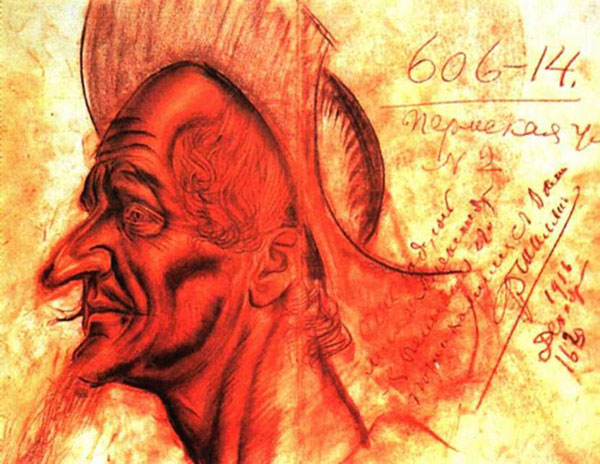-
1979-s-logo.jpg)
Number by catalogue: Michel: 1366 Yvert: 1177 Scott: 1169
Perforation type: 13x12 ¾
Subject:
1,5 franks. Scene from the "Don Quichotte" opera**, by Jules Massenet*
Additional:
*Jules (Émile Frédéric) Massenet (May 12, 1842 – August 13, 1912) was a French composer best known for his operas. His compositions were very popular in the late 19th and early 20th centuries. One of the greatest melodists of his era, Massenet was also the last: soon after his death, his style fell out of fashion, and many of his operas fell into almost total oblivion. Apart from Manon and Werther, his works were rarely performed. However, since the mid-1970s, many of his operas have seen periodic revivals.
Massenet was born in Montaud, then an outlying hamlet and now a part of the city of Saint-Étienne, in the Loire. His first music teacher was his mother. When he was eleven his family moved to Paris so that he could study at the Conservatoire there, which was temporarily interrupted by sickness of his father (iron-worker). To support himself at the time of his studies he worked as timpanist for six years at the Théâtre Lyrique, playing also other percussion instruments in other theatres, or as a pianist in the Café de Belleville.
Athough, initially, some of his teachers did not predicted for him any career in music, in 1862 he won the Grand Prix de Rome and spent three years in Rome. His first opera was a one-act production at the Opéra-Comique in 1867, but it was his dramatic oratorio Marie-Magdeleine (first performed in 1873) that won him praise from the likes of Tchaikovsky and Gounod. His real mentor and protector was the composer Ambroise Thomas, however, a man with contacts in theatrical circles, and, later, also his publisher, Georges Hartmann, whose connections with journalistic circles helped him to become better known in years of difficult and uncertain start. Even Massenet's marriage (in 1867, to Louise-Constance de Gressy) helped him a great deal in social circles, so important in that era.
Massenet took a break from his composing to serve as a soldier in the Franco-Prussian War, but returned to his art following the end of the conflict in 1871. From 1878 he was professor of composition at the Paris Conservatory where his pupils included Gustave Charpentier, Reynaldo Hahn and Charles Koechlin. His greatest successes were Manon in 1884, Werther in 1892, and Thaïs in 1894. Notable later operas were Le jongleur de Notre-Dame, produced in 1902, and Don Quichotte.
In addition to his operas, he also composed concert suites, ballet music, oratorios and cantatas and about two hundred songs. Some of his non-vocal output has achieved widespread popularity, and is commonly performed: for example the Méditation religieuse from Thaïs, which is a violin solo with orchestra, as well as the Aragonaise, from his opera Le Cid and Élégie for solo piano. The latter two pieces are commonly played by piano students.
Massenet died in Paris at age 70, after suffering from a long illness (cancer).
**Don Quichotte (Don Quixote) is an opera in five acts by Jules Massenet to a French libretto by Henri Cain,
Massenet's comédie-héroïque, like so many other versions of the story of Don Quixote, relates only indirectly to the great novel by Miguel de Cervantes Saavedra (1547-1616). The immediate inspiration was Le chevalier de la longue figure, a play by the poet Jacques Le Lorrain first performed in Paris in 1904. In this version of the story, the heroine Dulcinée, who never actually makes a physical appearance in the original novel, is a flirtatious local beauty inspiring one of the infatuated old man's exploits.
Conceiving originally Don Quichotte to be a three act opera, Massenet started to compose it in 1909 at the time when he, suffering from acute rheumatic pains, spend most of his time in bed than out of it, and composition of Don Quichotte became, in his words, a sort of "soothing balm." In order to concentrate on that new work he interrupted composition of his other opera, Bacchus.
Don Quichotte was first performed in Monte Carlo on 19 February 1910. Massenet identified personally with his comic-heroic protagonist, as he was in love with Lucy Arbell who sang Dulcinée at the first performance in 1910. He was then 67 and died just two years later. The role of Don Quichotte was one of the Russian bass Feodor Chaliapin's most notable achievements.
Immediately after the world premiere at Monte Carlo, opera was staged in Brussels, Marseilles and Paris (all in 1910). Then, on January 27, 1912, it was presented at the French Opera House in New Orleans, November 15, 1913, in Philadelphia, and on May 18, 1912, the London Opera House performed it as well.
After WWI Don Quichotte received its premiere in Budapest in 1917, and the Opéra-Comique in Paris presented it in 1924. The Metropolitan Opera in New York City performed it only 9 times in 1926, and never since, after devastating review of those performances in particular, and against Massenet's music in general, by Lawrence Gilman in the Herald Tribune.
Nevertheless, opera seems to be more successful outside of America: besides frequent and periodic revivals of it at Monte Carlo and in France, it was also shown with great success in Italy (Catania in 1928, Teatro Regio in Turin in 1933, Bologna in 1952, Venezia in 1982, Florenz in 1992), and even in Poland: Polish premiere in Kraków Opera (in 1962), and Baltic State Opera premiere (in 1969).
In the Alexander Jakovlev's drawing - Feodor Shalyapin in Don Quichotte role.
Centenary of the Salle Garnier, Monte Carlo Opera
Monaco 1979.04.30
In issue: Stamp(s): 6
Issued in: sheets of 30 (6x5) stamps